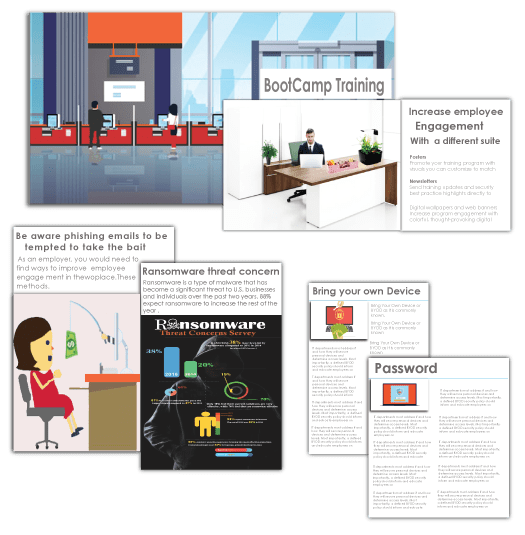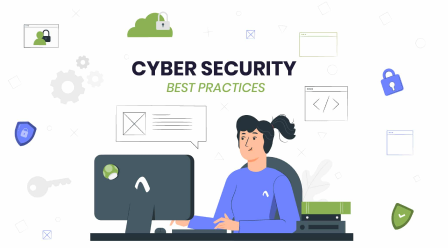Microsoft Azure Fundamentals course will provide you with foundational level knowledge of cloud services and how Microsoft Azure provides these services. The course walks you through cloud concepts; core azure services; security, privacy, compliance, and Trust; and pricing and support model. This course is aligned to the AZ-900 exam objective and will help you gain confidence in taking up the role-based examination. This course comes in an e-book format.
-
About this course
This course is suitable for program managers and technical sales, with a general IT background. These students want to learn about our offerings, see how components are implemented, and ask questions about products and features. This course does not provide an Azure pass or time in the classroom for students to do any hands-on activities. Students can get a free trial and do the walkthroughs outside of class. This course is primarily lecture and demonstrations. This course will help prepare someone for the AZ-900 exam.
-
Why should you take this course?
✅Understand cloud concepts
✅Master security, privacy, compliance, and trust
✅Learn about core Azure services
✅Understand Azure pricing and support
-
What will you learn by taking this course?
✅Cloud computing concepts
✅Security, Privacy, Compliance, and Trust
✅Core Azure Services
✅Azure Pricing and support models
-
Chapter 1: Explore Microsoft Azure cloud concepts (AZ-900)
Get started with Azure Fundamentals
✅ Introduction
✅ Explore exam study areas
✅ Create an Azure account
✅ Exercise - Create free Azure account
✅ Case study introduction
✅ Knowledge check
✅ Summary
Discuss why cloud services
✅ Introduction
✅ Define cloud computing
✅ Try exercise
✅ Explore key cloud concepts
✅ Discuss economies of scale
✅ Compare CapEx vs OpEx
✅ Define consumption-based models
✅ Knowledge check
✅ Summary
Distinguish types of cloud models
✅ Introduction
✅ Define public cloud
✅ Define private cloud
✅ Define hybrid cloud
✅ Compare cloud models
✅ Knowledge check
✅ Summary
Explore types of cloud services
✅ Introduction
✅ Define IaaS
✅ Define PaaS
✅ Define SaaS
✅ Compare cloud services
✅ Knowledge check
✅ Summary
-
Chapter 2: Distinguish Microsoft Azure Core Services (AZ-900)
Get started with Azure Fundamentals
✅ Introduction
✅ Explore exam study areas
✅ Create an Azure account
✅ Exercise - Create free Azure account
✅ Case study introduction
✅ Knowledge check
✅ Summary
Discuss core Azure architectural components
✅ Introduction
✅ Examine regions
✅ Explore region pairs
✅ Define geographies
✅ Determine availability options
✅ Define availability sets
✅ Define availability zones
✅ Explore resource groups
✅ Explore Azure resource manager
✅ Knowledge check
✅ Summary
Define core Azure services and products
✅ Introduction
✅ Define Azure Compute
✅ Explore Azure Compute services
✅ Walkthrough - Create a virtual machine
✅ Define container services
✅ Walkthrough - Deploy Azure Container Instances
✅ Explore Azure network services
✅ Walkthrough - Create a virtual network
✅ Define Azure data categories
✅ Explore Azure Storage
✅ Walkthrough - Create blob storage
✅ Explore Azure database services
✅ Walkthrough - Create a SQL database
✅ Explore Azure Marketplace
✅ Knowledge check
✅ Summary
Identify Azure solutions
✅ Introduction
✅ Define Internet of Things
✅ Walkthrough - Implement the Azure IoT Hub
✅ Explore big data and analytics
✅ Explore artificial intelligence
✅ Define serverless computing
✅ Walkthrough - Implement Azure functions
✅ Explore DevOps
✅ Explore Azure App Service
✅ Walkthrough - Create a web app
✅ Knowledge check
✅ Summary
Differentiate Azure management tools
✅ Introduction
✅ Explore Azure management tools
✅ Explore Azure advisor
✅ Walkthrough - Create a Virtual Machine with a template
✅ Walkthrough - Create a Virtual Machine with PowerShell
✅ Walkthrough - Create a Virtual Machine with the Command Line Interface
✅ Knowledge check
✅ Summary
-
Chapter 3: Examine Microsoft Azure security, privacy, compliance, and trust (AZ-900)
Get started with Azure Fundamentals
✅ Introduction
✅ Explore exam study areas, Create an Azure account
✅ Exercise - Create free Azure account
✅ Case study introduction, Knowledge check
✅ Summary
Secure network connectivity
✅ Introduction
✅ Explore defense in depth
✅ Define shared security, Explore Azure Firewall
✅ Explore Azure Distributed Denial of Service protection
✅ Define Network Security Groups
✅ Define Application Security Groups
✅ Choose Azure network security solutions
✅ Walkthrough - Secure network traffic
✅ Knowledge check
✅ Summary
Examine core identity services
✅ Introduction
✅ Compare authentication and authorization
✅ Explore Azure Active Directory
✅ Explore Azure Multi-Factor Authentication
✅ Knowledge check
✅ Summary
Review security tools and features
✅ Introduction
✅ Explore Azure Security Center
✅ Walkthrough - Azure security center usage scenario
✅ Explore Key Vault, Walkthrough - Implement Azure Key Vault
✅ Define Azure Information Protection (AIP)
✅ Define Azure Advanced Threat Protection (ATP)
✅ Knowledge check
✅ Summary
Describe Azure governance methodologies
✅ Introduction
✅ Define Azure policy
✅ Implement Azure policy
✅ Define policy initiatives
✅ Walkthrough - Create an Azure policy
✅ Explore Role-Based Access Control (RBAC)
✅ Walkthrough - Manage access with RBAC
✅ Define resource lock, Walkthrough - Manage resource locks
✅ Explore Azure blueprints, Define subscription governance
✅ Knowledge check
✅ Summary
Explore monitoring and reporting
✅ Introduction
✅ Explore Tags
✅ Walkthrough - Implement resource tagging
✅ Explore Azure Monitor
✅ Explore Azure service health
✅ Monitor applications and services
✅ Knowledge check
✅ Summary
Examine privacy, compliance, and data protection standards
✅ Introduction
✅ Explore compliance terms and requirements
✅ Identify the Microsoft privacy statement
✅ Explore trust center, Explore service trust portal
✅ Explore compliance manager
✅ Walkthrough - Explore trust center
✅ Identify Azure Government services
✅ Identify Azure China 21Vianet
✅ Knowledge check
✅ Summary
-
Chapter 4: Review Microsoft Azure pricing, service level agreements, and lifecycles (AZ-900)
✅ Describe Azure security features
Get started with Azure Fundamentals
✅ Introduction
✅ Explore exam study areas
✅ Create an Azure account
✅ Exercise - Create free Azure account
✅ Case study introduction, Knowledge check
✅ Summary
Examine Azure subscriptions
✅ Introduction
✅ Define Azure subscriptions
✅ Explore subscriptions offers
✅ Discuss Azure free accounts
✅ Explore management groups
✅ Knowledge check
✅ Summary
Review planning and managing Azure costs
✅ Introduction
✅ Purchase Azure products and services
✅ Explore factors affecting costs
✅ Identify zones for billing purposes
✅ Explore the Pricing Calculator
✅ Walkthrough - Use Azure Pricing Calculator
✅ Explore Total Cost of Ownership Calculator
✅ Walkthrough - Use Azure TCO Calculator
✅ Explore minimizing costs
✅ Define Azure Cost Management
✅ Knowledge check
✅ Summary
Explore Azure service level agreements (SLAs)
✅ Introduction
✅ Define service level agreements (SLAs)
✅ Explore SLAs for Azure products or services
✅ Define composite SLA, Define application SLA
✅ Walkthrough - calculate composite SLAs
✅ Knowledge check
✅ Summary
Examine service lifecycle in Azure
✅ Introduction
✅ Define public and private preview features
✅ Access preview features
✅ Access Azure portal Preview
✅ Discuss general availability
✅ Monitor service and feature updates
✅ Walkthrough - Access Azure preview features
✅ Knowledge check
✅ Summary
-
How does Microsoft decide how many questions on a particular subject to include on the exam?
The skills measured on an exam are identified by subject-matter experts external to Microsoft (in other words, they are not Microsoft employees). This list of skills, called the “objective domain,” is the basis for exam development. The number of questions that measure each skill area is determined through the blueprinting process; sections of the exam measuring critical and/or more frequently performed skills will contain more questions than those that assess less important or less frequently performed skills.
-
Will the exam cover material that is not covered in the Microsoft training or Microsoft Press book I am using to prepare for the exam?
All learning materials related to a given job role are built from the same job task analysis. As a result, the learning content should be closely aligned to the exams. Keep in mind, however, that the learning materials are developed independently of exam content because the exams are intended to assess competence in the job role, not the effectiveness of training materials or learning. Because the exams are designed to assess your ability to apply skills beyond what was explicitly covered in the learning, the skills will be assessed at a higher level than was taught in the training. For some candidates, this can give the impression that the skill was not taught in the associated learning; however, all skills assessed on the exam are included in our learning options.
-
How should I prepare for an exam?
The best way to prepare for an exam is to practice the skills listed on the Exam Details page. Browse all exams to find the exam that interests you. Hands-on experience with the technology is required to successfully pass Microsoft Certification exams. The associated microlearning, online courses, and instructor-led courses are intended to train the skills needed to be successful in the job role, a subset of which will be assessed on the exam. However, because the exam focuses on application of those skills beyond what was taught in these courses, experience or practice in addition to training is strongly recommended prior to taking the exam. To start preparing, review the “Skills measured” section of the Exam Details page and evaluate your skills against what is being assessed on the exam. The best way to do this is to actually perform the tasks listed and note any challenges that you encountered. Practice until you no longer experience those challenges.
Microsoft Certified Trainers work with many candidates as they prepare for certifications. They often recommend the following steps to help candidates focus their studies:
Browse all exams to find the exam that interests you.
Print the Skills Measured section of the page.
Review the entire list. Think about each topic. If you are very knowledgeable on a specific topic, highlight the topic or cross it out.
Look at what is left. Now, start some targeted research. For each topic that you did not highlight, search the web for specific articles.
Use authoritative sources such as docs.microsoft.com, msdn.microsoft.com, technet.microsoft.com, and the Office 365 support center
You might also want to ask others how they perform those tasks, read white papers, MSDN, or TechNet to get additional information about the tasks that are included on the exam, and/or explore the resources provided in the “Preparation materials” section on the Exam Details page which will link to any available online courses, microlearning, options and a portal where you can find instructor-led training options in your area.Additionally, Microsoft Official Practice Tests are available for some of our certification exams. These may provide more information about your specific strengths and weaknesses. However, passing a practice test is not a guarantee that you will pass the certification exam.
If you have taken the exam and not passed, prioritize the skills that you should practice by focusing on the content areas where your exam performance was the weakest and the content areas that have the highest percentage of questions.
- Key Features:
- Created by a Security expert :
- Access period : 12 months
- Course duration : 40+ hours
- Quizzes & revision exams :
- Certificate of completion :
- Support : 24/7 hours

MICROSOFT AZURE FUNDAMENTAL
Pick your preferred schedule
Why learn with us?
- We're tech career experts
- 25,000+ students worldwide
- Alternative to traditional university education
- Start a new career or advance your current one & land your dream job
- Award winning StudentCare
- Most in-demand skills for job market
- Partnered with most biggest accreditors in the world
- Exclusive student benefits

Reason to Choose MICROSOFT AZURE FUNDAMENTAL

- Exam Pass Guarantee (live online)
- 100% Satisfaction Guarantee
- Immediate access to Aspire portal for practice exam
- Get started with Certification pathway
- Knowledge Transfer Guarantee
- Take advantage of globally recognized platform
Target Audience
- The AZ-900 Microsoft Azure Fundamentals certification exam is geared towards candidates with non-technical backgrounds looking to demonstrate their foundational knowledge of cloud services, in addition to how those services are provided within the Microsoft Azure cloud. These candidates includes those involved in selling or purchasing cloud based solutions and services or have some involvement in cloud based services and solutions. It also includes those with a technical background looking to validate their foundational level knowledge of the cloud.
- No technical IT experience is required for this exam, but some general IT knowledge would certainly be beneficial

Find Your Boot Camp
Boost Engagement with delivering Communication Tools

Increase employee engagement with a different suite of communication tools like:
Posters
Promote your training program with visuals you can customize to brand... more
Newsletters
Send training updates and security best practice highlights directly... more
Digital wallpapers and web banners
Increase program engagement with colorful thought-provoking messaging... more
Training Videos/Animations
Strengthen key awareness concepts and skills through stylish visual... more
Why Aspire Tech
Award-winning courses
Aspire's award-winning online courses and programs are created and delivered by a renowned Cyber Security specialist.
The perfect fit for business
Plans for small to large businesses that are flexible to match your budget. There is a volume discount available.
Cost effective training
For a fraction of the expense of traditional classroom training, train thousands of employees in numerous locations.
